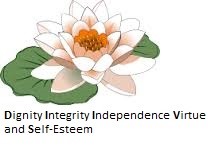Part I
WINGS – We Inspire Girls to Succeed!!
By Ana Cimino, Albert Schweitzer Follow, Clarina Howard Nichols Center
Through the sponsorship of the Albert Schweitzer Fellowship and Clarina Howard Nichols Center, Ana Cimino has spent the year hosting a youth empowerment group that focused on breaking the cycle of gender-based violence. The kids who participate in the group entitled it WINGS – We Inspire Girls to Succeed.
Working with the Clarina Howard Nichols Center, a Vermont agency that serves survivors of domestic violence and their children, Cimino has implemented a program that fosters an empowering and safe environment for kids to heal and grow. The program delivers its curriculum through various modalities, including art, dance, and writing. This program is not a support group, but rather an advocacy program empowering local youth to find their own space to heal, and to open the dialogue on healthy relationships and body image.
Cimino divided the year into two focus areas: defining and developing healthy Continue reading


